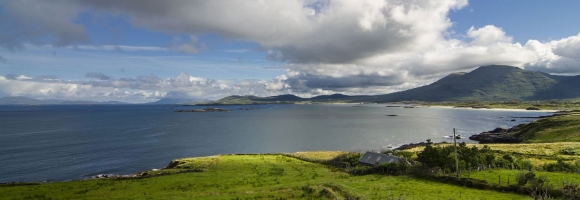Flogas Launches Drive to Switch Homes to Green Electricity

Paul Kenny, General Manager, Flogas Energy.
Energy company Flogas Ireland is greening up for an electric summer with the launch of its new Green Electricity* campaign. It encourages householders to switch to a 100% Green alternative for their electricity, while saving some money along the way.
The campaign is aimed at residential customers in specific regions of the country where Flogas has built up a strong awareness as a provider of natural gas and LPG for many years.
The creative seeds of the idea stem from the growing public desire to lessen the environmental impact of home energy use, which accounts for one quarter (25%) of all energy related carbon emissions in Ireland, according to the Sustainable Energy Authority of Ireland (SEAI). It will let customers know that they have a new and cost-effective alternative to their present electricity supplier.
Flogas is offering up to €200 cashback** for all customers prepared to make the switch to a cleaner future and fixed discounts for up to two years.
Less than 20% of homes switched electricity provider in the last 12 months which means that many are missing the opportunity of reducing their carbon footprint - as not all suppliers offer 100% Green electricity, and many customers are paying more for their home electricity than they need to.
Paul Kenny, general manager, Flogas Energy, said “Sustainability, cost and local community involvement are the key areas customers tell us that matter in choosing an electricity supplier. Many customers don’t yet know that Flogas offers electricity and we feel that they will be excited to hear that a locally based, established Irish energy company who they have dealt with for decades, is now offering them cost effective 100% green electricity.”
Recognising the huge move this year to an “outdoor summer”, the campaign starts in late July and will use local and national radio and outdoor advertising, personalised to local areas as well as PR and social media. In line with the focus on sustainability, all outdoor posters are being printed on recycled paper.
As Paul Kenny says “Switching is easy, just call Freefone 1800 200 052 or visit flogas.ie ”
*Subject to verification by the CRU under the CRU’s green source product verification process.
**Terms and conditions apply
About Flogas and our sustainability agenda
- Flogas has been supplying Irish homes and businesses with energy since 1978, beginning with LPG and now including natural gas and electricity.
- Employing over 220 people across Ireland, Flogas is a significant employer in the North East.
- Flogas has over 170,000 customers on the island of Ireland, including Budget Energy, Northern Ireland s second largest residential electricity supplier.
- Flogas electricity supply is generated via 100% renewable sources*, using individual renewable generation sites comprising wind, solar generation, and anaerobic digestion. The generators range from small rooftop domestic solar installations to large wind farm sites in rural locations.
- Flogas continues to identify power purchasing opportunities and has recently reached an agreement with Currabwee wind farm in Co Cork.
- Flogas was the first energy company in Ireland to offer Green dual fuel and natural gas by offsetting the emissions from its natural gas offering for its residential customers at no extra charge. The innovation won Gold in the Best Customer Innovation category at the bonkers.ie National Consumer Awards for 2021.
- As a business Flogas continually strives for energy efficiency in all its operations, for example, by investing in new fuel-efficient vehicles and software technologies to manage LPG deliveries in a more environmentally friendly manner, reducing postage and paper costs by switching to electronic billing; investment in a new customer portal and implementing energy efficiency programmes at all its locations around the country.
- Flogas is committed to reducing its carbon emissions by 20% by 2025 and to net-zero by 2050.

